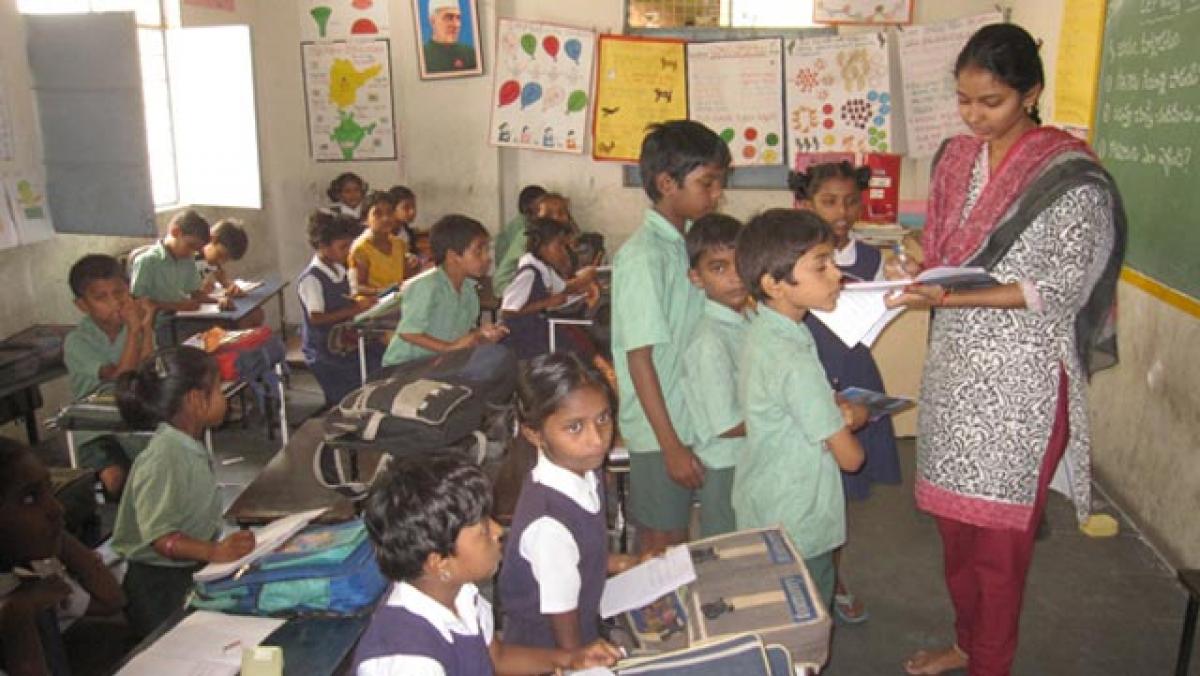Live
- ‘Srikakulam Sherlock Holmes’ to hit screens this Christmas
- ‘Mr Manikyam’ FL unveiled; promises a tale of human values
- ‘M4M’ Hindi trailer gets a grand launchat Goa IFFI
- ESA’s Proba-3 Mission Reaches Milestone with Successful Fueling, Set for December 2024 Launch
- Kejriwal tells Delhi voters to back AAP’s single-engine, shun BJP’s double-engine govt plan
- Man booked for objectionable posts on Hindu deities in Karnataka
- 'Own interpretation developed': SC trashes pleas challenging insertion of 'Socialist', 'Secular' in Preamble to Constitution
- Gurugram: Three including two women held in murder case
- Afghanistan: Six killed as vehicle falls into river in Badakhshan
- Complete failure in handling the situation: Congress on Sambhal violence
Just In

In the recent past a theft of a camera, an iPod and cash took place in my younger daughter\'s house in rural Maharashtra.
In the recent past a theft of a camera, an iPod and cash took place in my younger daughter's house in rural Maharashtra. The finger of suspicion fell on a Class 8 student from a good local school. He lived nearby and came often to my daughter's house during her absence since his dog loved to play with my daughter's dog and the maid would allow him to play inside the house.
On questioning by police he admitted to the theft and then dropped a bombshell: Most students in his class regularly indulged in stealing electronic gadgets like smart phones and cameras and sold these to local shop owners. It was like a game for them and they would compare notes on who stole the best gadget. It turned out they also indulged in drinking and causing serious physical violence.
Such behavior is not unique to our small rural town. It is happening all over the country. What type of children are we raising in our society? These children, when they become adults, get into bigger crimes and mind you, these children were studying in a good school in our town of Phaltan.
This was extremely depressing and I started wondering about how we can create such conditions in schools that these kinds of traits don't develop in children.
think in the race to make the children cram knowledge (and sometimes useless knowledge) we have lost the art of teaching moral science to them and have them imbibe ethical behavior. If the children are taught ethics and morality as a part of all courses, then even 5-6 hours they spend in school may help in changing their character.
This is true since very few parents have the time to spend with their children and feel that their work is over when the children are either sent to coaching classes or show that they are studying late doing their homework. The general discussion on what is right or wrong and ethics is rarely conducted. So they learn the risqué behavior mostly from their peers.
How can we mould these children for better behavior? Partly by making education enjoyable as today it is mostly rote learning and passing of examinations. If we engage the students thoroughly in the class with interesting hands-on work and experiments, then they will have less time to think about criminal things.
In some of the great schools all over the world, students make things through 3D printers and are engaged in other activities which not only occupy their time but also help them learn about physics, chemistry, mathematics and other subjects in an enjoyable way. However, for this to happen we need great teachers who love to teach and inspire students. At present the whole teaching system in India is based upon the principle "Those who cannot - teach."
Even with very good pay for teachers we rarely get great teachers. I feel one can never hire teachers - they are born that way. The trick is to identify them in every walk of life and maybe induce them to join the teaching profession. Since most people involved in teaching are doing so only for a living, it becomes very easy for them to focus only on curriculum and nothing else. This creates a regime which only emphasises on passing examinations.
Yet, with new technologies of 3D printing, reasonably priced materials and the internet et al, one can teach students in such a way that learning becomes enjoyable. My daughter teaches English and science in Kamala Nimbkar Bal Bhavan in Phaltan. She teaches Class VII and VIII students English through movie making. She has taught them to make short videos which they upload on YouTube.
They have become so interested in making them that they spend a lot of time on the Internet searching for themes, music and the like. This creativity bug keeps them very busy and they don't spend much time chatting on social networks. Another problem in India is that even if you want to teach and have a flair for it, you cannot do so till you have a B Ed degree. This is especially true for government-aided schools.
There is no problem in doing a B Ed but its course work is boring, horrible and hardly teaches anything - let alone how to become a good teacher. So, one can imagine what type of teachers we are producing. These are the teachers in schools in rural areas where the major portion of Indian population lives.
We should reduce the bureaucratic hold on the school system and allow innovation and creativity to flower. This may help in getting a large number of motivated and dedicated teachers.
By Anil K Rajvanshi

© 2024 Hyderabad Media House Limited/The Hans India. All rights reserved. Powered by hocalwire.com







